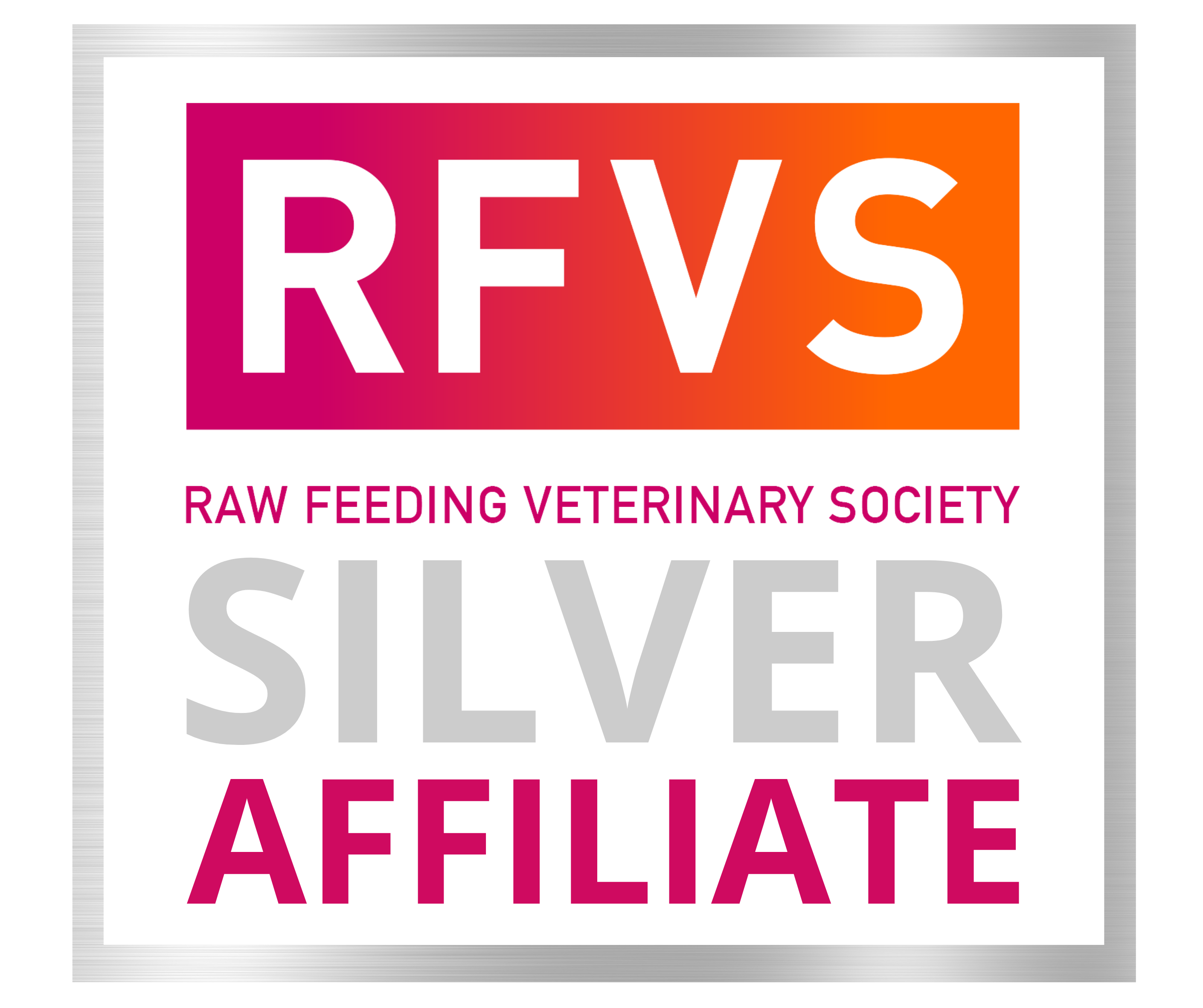Do Cats & Dogs Need Fibre?
DIETARY FIBRE
People are encouraged to include dietary fibre in their diets to promote gut health. Dietary fibre resists digestion in the small intestine, and makes it through to the large intestine intact, where it is fermented by microbes to give rise to SCFAs (short chain fatty acids, such as butyrate, acetate and propionate), and gases. SCFAs are beneficial for the cells lining our gut, and thus promote gut health. There is debate over what the optimal amount of dietary fibre is for people, and concern that excessive amounts, or supplemental forms could have detrimental effects. In general, a diet with plenty of vegetables - a natural source of fibre - correlates with better health outcomes for people.
Working off the assumption that fibre is good for human health, people often add vegetables to their dog or cat's diet. But does it make sense that a carnivore requires vegetable fibre to support gut health?
Studies have shown that animal products (cartilage, collagen, glucosamine-chondroitin, bone, hair and skin) fed to carnivores act like vegetable fibre fed to people. The animal products (especially the collagen and cartilage) are fermented in the large intestine, where they too give rise to SCFAs. Processed raw diets (those lacking in whole cartilage, collagen, bone etc) may not provide the same benefits, and the study authors warned that more research is required. Based on the current science though, it would seem prudent to include regular raw meaty bones, or at least ensure there is some cartilage fed, as part of a well-planned raw diet.
References
Evaluation of four raw meat diets using domestic cats, captive exotic felids, and cecectomized roosters. K. R. Kerr, A. N. Beloshapka, C. L. Morris, C.M. Parsons, S. L. Burke, P. L. Utterback and K. S. Swanson J ANIM SCI 2013, 91:225-237. doi: 10.2527/jas.2011-4835 originally published online October 9, 2012 http://www.journalofanimalscie... of animal components in strict carnivores: A comparative study with cheetah fecal inoculum. S. Depauw, G. Bosch, M. Hesta, K. Whitehouse-Tedd, W. H. Hendriks, J. Kaandorp and G. P. J. Janssens J ANIM SCI 2012, 90:2540-2548. doi: 10.2527/jas.2011-4377 originally published online January 27, 2012
Apparent total tract energy and macronutrient digestibility and fecal fermentative end-product concentrations of domestic cats fed extruded, raw beef-based, and cooked beef-based diets. K. R. Kerr, B. M. Vester Boler, C. L. Morris, K. J. Liu and K. S. Swanson J ANIM SCI 2012, 90:515-522. doi: 10.2527/jas.2010-3266 originally published online October 14,
